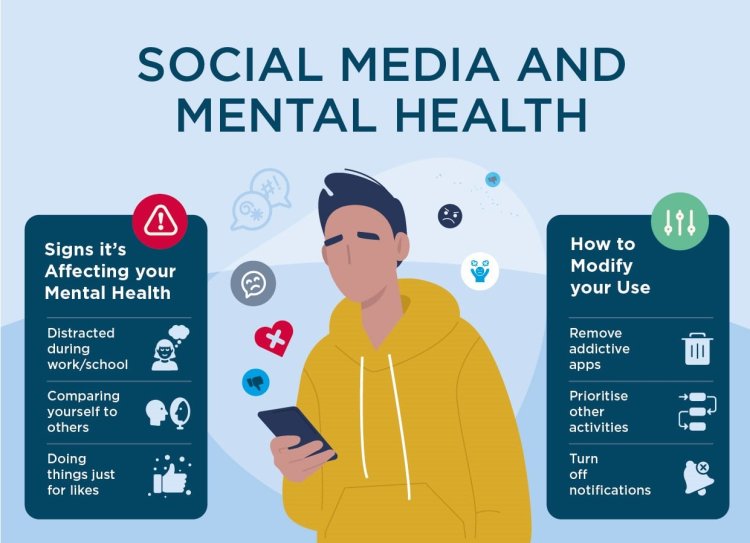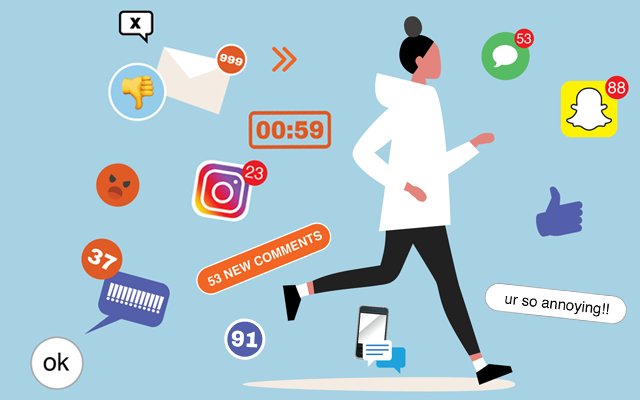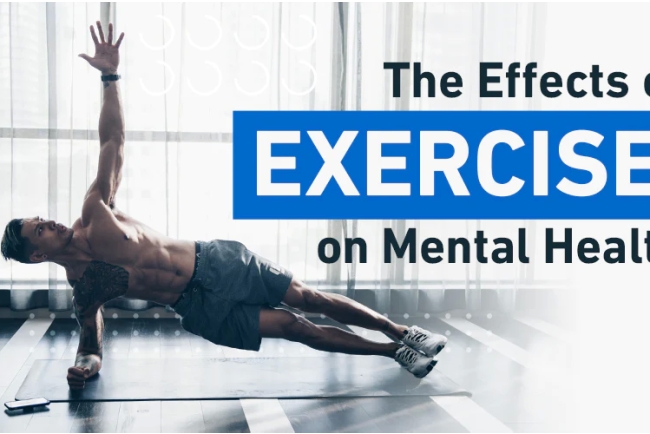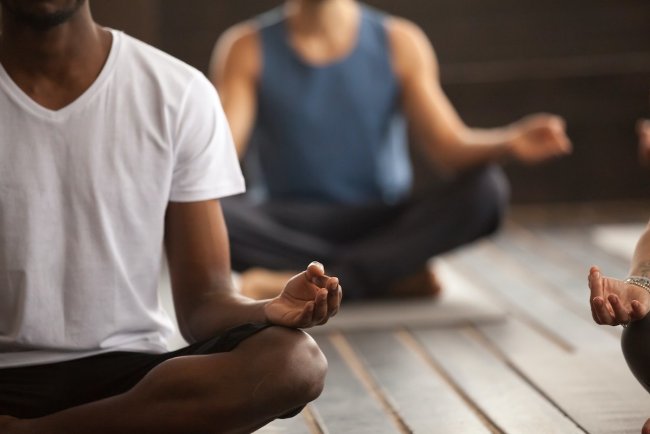The Impact of Social Media on Mental Health: Navigating the Digital Landscape
Explore the profound influence of social media on mental health in this comprehensive article. Uncover the positive and negative aspects, backed by expert insights and real-world experiences.

Introduction
Social media has now become an integral part of our daily lives. Whether it's connecting with friends and family, following your favorite celebrities and influencers, or keeping up with current events, most people now access social media platforms on a daily basis. However, as social media usage has increased exponentially over the past decade, so too have concerns about how it may be impacting our mental health and well-being.
In this blog post, I aim to explore some of the key ways in which social media use has been linked to both positive and negative effects on mental health. I will discuss research findings on conditions like depression, anxiety, loneliness, body image issues, and more. I will also provide some tips and recommendations for how to use social media in a healthy, balanced way to maximize the benefits and minimize the risks to your mental wellbeing.
Before diving deeper into the impacts, it's important to note that social media's effects likely differ for each individual based on a variety of personal factors like age, personality traits, offline social support networks, and overall usage habits and behaviors. What may negatively impact one person's mental health may have little or no effect on another's. Similarly, people derive different levels of benefit depending on how they personally engage with and utilize social media platforms. With that caveat in mind, let's take a closer look at some of the main research findings on social media's connections to mental health.
Loneliness and Social Comparison
One of the oft-cited negative consequences of social media use relates to increased feelings of loneliness and social comparison. Various studies have found associations between greater time spent on social media and heightened levels of loneliness. Specifically, passive and non-interactive forms of social media use (like solely viewing others' posts rather than directly engaging and communicating) have been linked the most to loneliness.
The reasoning proposed for this connection centers around social comparison theory. When passively scrolling through curated highlights of others' lives on platforms like Instagram and Snapchat, it's easy to directly compare your own life circumstances to what you're seeing. Other people's lives may appear more exciting, fulfilling, or socially connected than your own through these brief snapshots and highlight reels, generating feelings of inadequacy, missing out, and loneliness as a result.
Additionally, the curated nature of what people choose to share on their profiles likely skews perception. Very few actively post mundane or down moments of their lives. So continual social comparison via social media fosters unrealistic ideals and standards that are difficult to live up to in reality. This can damage self-esteem and exacerbate loneliness over time for some.
Interestingly, other research has found that simply informing people of these linkages can help protect against those negative impacts. Being aware that social media often just shows a polished version of others' lives can buffer some of the toxic consequences of constant social comparison via platforms. Having this knowledge and perspective allows you to take what you see with a grain of salt.
FOMO and Anxiety
Closely tied to loneliness and social comparison is the rise of Fear of Missing Out, commonly known as FOMO. This phenomenon speaks to the anxiety produced by constantly seeing others' exciting social activities and moments through social media when not attending those events yourself. This creates a persistent worry that you are absent from experiences others are participating in and having fun doing.
Not surprisingly, studies show strong associations between FOMO and levels of anxiety, stress, lower mood, and lack of well-being. The incessant feeling of missing out on what peers are doing can disrupt your sense of contentment with your own life. And with social media amplifying opportunities for FOMO 24/7 through alerts, notifications and live updates, it becomes very difficult to avoid or escape those anxious feelings.
Interestingly, researchers have found FOMO to particularly impact younger generations who have never known life without social media. Their entire socialization and upbringing have overlapped with the rise of social platforms, making FOMO a learned, normalized part of their mental experience. Finding effective methods for its reduction may require targeted approaches geared specifically to younger demographics.
Body Image Pressures
For issues like body image, self-esteem and disordered eating, the connection to social media is clearer, with research showing strong associations between these platforms and increased concerns - particularly among teenage girls and young women.
Seeing curated, airbrushed images promoting certain societal ideals of attractiveness and thinness generates constant comparison, often to unrealistic standards that are near impossible for the average person to live up to naturally. These platforms also provide spaces for promotion of extreme dieting/fitness trends that position very slender body types as the goal, which some experts argue is damaging at best and can enable disordered behaviors at worst.
Having highly public forums for obsessive posting about diets, workouts and weighing oneself also fosters an unhealthy preoccupation with appearance and physical changes, sometimes leading to dangerous behaviors like strict fasting, dangerous supplementation or over-exercising. The perpetual feedback loop of how many likes, comments and validation metrics shallow beauty standards generate serves to further entrench these distorted views of attractiveness as well.
While both men and women can develop body image issues, this aspect disproportionately affects young women already socialized in a culture rife with narrow beauty prescriptions. The constant immersion into worlds emphasizing slimming procedures, dieting tips, and digitally-modified images of near-unattainable physiques has mental health experts worried about rising rates of eating disorders directly enabled by social networking culture.

Addiction and Compulsiveness
A newer area of focus examines whether social media itself could potentially be addictive for some users, or at least foster compulsive usage behaviors similar to other psychological addictions. New research is attempting to explore this concern.
The continuous stream of notifications, alerts and content keeping users engaged fulfills similar neurological reward pathways enhanced by true substance addictions. Seeing likes, comments, and reactions triggers dopamine hits that reinforce keep checking and scrolling. Meanwhile, the fear of missing out also serves to keep users plugged into the constant social media stream out of anxiety.
For the highly social media-dependent, withdrawal symptoms like irritability, restlessness and anxiety are sometimes noted if cutting usage cold turkey, similar to traditional dependencies. And behavioral signs like inability to restrict use, neglecting other life areas, and using it to escape or cope link compulsiveness to addictiveness as well.
While social media overuse has not received an official diagnosis as its own addiction, links to compulsive usage behaviors raise parallels worth examining. Identifying tendencies and setting healthy limits is prudent for those who feel constant urges to check apps. While not chemically addictive, the highly habitual engagement may trigger some brain responses comparable to addictive substances for susceptible individuals.
Social Isolation and Depression
Loneliness and lack of real-world social connections can also negatively impact mental wellness over the long term. Heavy reliance on online socializing rather than face-to-face gatherings has prompted some experts to observe rising levels of social isolation post-social media. This in turn can enable or exacerbate conditions like depression.
While it's impossible to fully separate correlation from causation, research regularly finds associations between frequent social media use and higher risks for depression, even after accounting for other variables. However, directionality is still unclear - it may be that depressed people tend to use it more as opposed to it directly causing depressive symptoms.
Additionally, heavy social media use has been tied to poorer sleep hygiene which is itself a depression risk factor. Late night scrolling interferes with sleep patterns critical for mental balance. The constant content bombardment also provides around-the-clock opportunities for negative social comparisons and worrisome existential thoughts.
That said, maintaining real friendships and social interactions online can also help boost mood and reduce isolation risks for some individuals. Overall, the linkage between abundant screen time, lack of in-person socializing and worsening mental health needs more rigorous study to understand nuanced impacts over time. But risks for more susceptible user groups remain a serious concern.
Cyberbullying and Online Harassment
Not all social media effects deal with passive usage - cyberbullying presents very real dangers, particularly for adolescents and teens. Rates of online harassment extend beyond just name-calling to include behaviors like dangerous impersonation, outing private information, and stalking with intent to intimidate or cause distress. Victims show increased risk for anxiety, depression and sometimes suicidal thoughts.
Abusive comments, manipulation of private data and aggressive follower interactions worn thin a person's self-esteem and sense of security over time. The ability to anonymously harass others online also fosters disinhibition and decreased empathy. Most younger users now consider cyberbullying among their top online safety concerns, though awareness efforts still target helping bystanders intervene.
Meanwhile, constantly policing social feeds and comments for signs of aggression redirects focus onto invalidating rather than validating exchanges, taking a psychological toll. Experiencing or witnessing harassment signals social media comes with significant mental risks that warrant vigilance and having open discussions on prevention with both children and caregivers.
FAQs
What's Your Reaction?




















